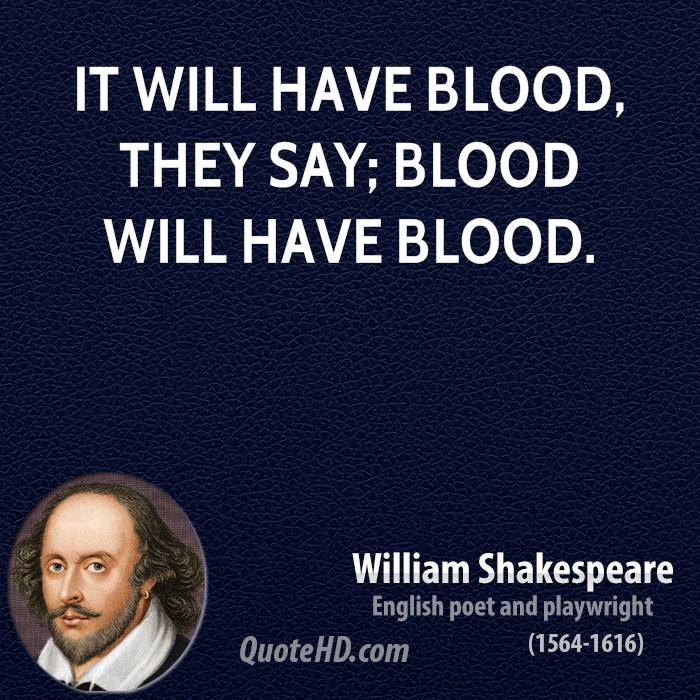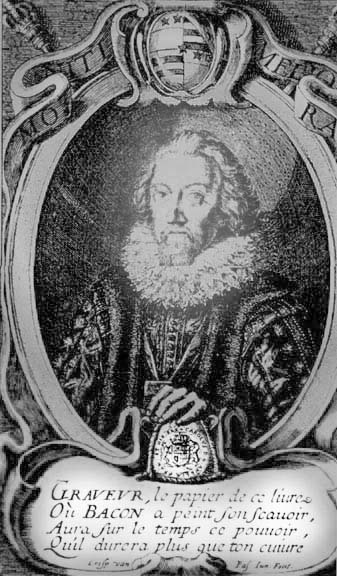It was in recognition of Bacon’s intellectual accomplishments that King James turned over to him the translators’ manuscripts of what is now known as the King James Bible for the presumable purpose of checking, editing, and revising them. The documents remained in his hands for nearly a year, but no information is to be had concerning what occurred in that time. Regarding this work, William T. Smedley writes: ” It will eventually be proved that the whole scheme of the Authorised Version of the Bible was Francis Bacon’s.” (See The Mystery of Francis Bacon.) The first edition of the King James Bible contains a cryptic Baconian headpiece. Did Bacon cryptographically conceal in the Authorized Bible that which he dared not literally reveal in the text–the secret Rosicrucian key to mystic and Masonic Christianity?
Sir Francis Bacon unquestionably possessed the range of general and philosophical knowledge necessary to write the Shakespearian plays and sonnets, for it is usually conceded that he was a composer, lawyer, and linguist. His chaplain, Doctor William Rawley, and Ben Jonson both attest his philosophic and poetic accomplishments. The former pays Bacon this remarkable tribute: “I have been enduced to think that if there were a beame of knowledge derived from God upon any man in these modern times, it was upon him. For though he was a great reader of books; yet he had not his knowledge from books but from some grounds and notions from within himself. ” (See Introduction to the Resuscitado.)
Sir Francis Bacon, being not only an able barrister but also a polished courtier, also possessed that intimate knowledge of parliamentary law and the etiquette of the royal court revealed in the Shakespearian plays which could scarcely have been acquired by a man in the humble station of the Stratford actor. Lord Verulam furthermore visited many of the foreign countries forming the background for the plays and was therefore in a position to create the authentic local atmosphere contained therein, but there is no record of William Shakespeare’s ever having traveled outside of England.
The magnificent library amassed by Sir Francis Bacon contained the very volumes necessary to supply the quotations and anecdotes incorporated into the Shakespearian plays. Many of the plays, in fact, were taken from plots in earlier writings of which there was no English translation at that time. Because of his scholastic acquirements, Lord Verulam could have read the original books; it is most unlikely that William Shakespeare could have done so.
Abundant cryptographic proof exists that Bacon was concerned in the production of the Shakespearian plays. Sir Francis Bacon’s cipher number was 33. In the First Part of King Henry the Fourth, the word “Francis” appears 33 times upon one page. To attain this end, obviously awkward sentences were required, as: “Anon Francis? No Francis, but tomorrow Francis: or Francis, on Thursday: or indeed Francis when thou wilt. But Francis.”
Throughout the Shakespearian Folios and Quartos occur scores of acrostic signatures. The simplest form of the acrostic is that whereby a name–in these instances Bacon’s–was hidden in the first few letters of lines. In The Tempest, Act I, Scene 2, appears a striking example of the Baconian acrostic:
“Begun to tell me what I am, but stopt And left me to a bootelesse Inquisition, Concluding, stay: not yet.
The first letters of the first and second lines together with the first three letters of the third line form the word BACon. Similar acrostics appear frequently in Bacon’s acknowledged writings.
The tenor of the Shakespearian dramas politically is in harmony with the recognized viewpoints of Sir Francis Bacon, whose enemies are frequently caricatured in the plays. Likewise their religious, philosophic, and educational undercurrents all reflect his personal opinions. Not only do these marked similarities of style and terminology exist in Bacon’s writings and the Shakespearian plays, but there are also certain historical and philosophical inaccuracies common to both, such as identical misquotations from Aristotle.
“Evidently realizing that futurity would unveil his full genius, Lord Verulam in his will bequeathed his soul to God above by the oblations of his Savior, his body to be buried obscurely, his name and memory to men’s charitable speeches, to foreign nations, to succeeding ages, and to his own countrymen after some time had elapsed. That portion appearing in italics Bacon deleted from his will, apparently fearing that he had said too much.

Moe is the founder of GnosticWarrior.com. He is a father, husband, author, martial arts black belt, and an expert in Gnosticism, the occult, and esotericism.




![How the South Saxons received Eadbert and Eolla, and the West Saxons, Daniel and Aldhelm, for their bishops; and of the writings of the same Aldhelm [705 A.D.] | Book 5 | Chapter 17 How the South Saxons received Eadbert and Eolla, and the West Saxons, Daniel and Aldhelm, for their bishops; and of the writings of the same Aldhelm [705 A.D.] | Book 5 | Chapter 17](https://www.gnosticwarrior.com/wp-content/plugins/contextual-related-posts/default.png)